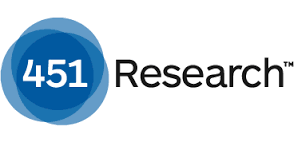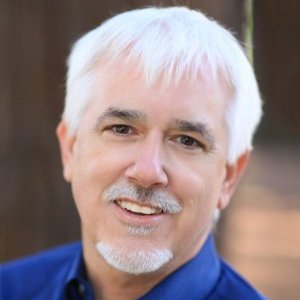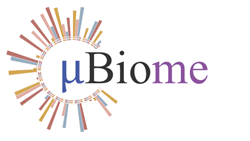News Clips
Moscow City expands use of Think!EHR Platform™ to provide applications for city hospitals
 Moscow City already uses Think!EHR Platform™ to store clinical data from more than 500 primary care centers that cover healthcare needs of the city’s 12 million citizens. This expanded relationship will allow the city to build applications to manage care at over 100 hospitals across Moscow resulting in a unified electronic healthcare record across all care settings for every citizen. In addition, since Think!EHR Platform™ stores clinical data in a vendor-neutral openEHR format, the health record will provide a foundation for innovation by enabling an ecosystem of apps and applications from many vendors.
Moscow City already uses Think!EHR Platform™ to store clinical data from more than 500 primary care centers that cover healthcare needs of the city’s 12 million citizens. This expanded relationship will allow the city to build applications to manage care at over 100 hospitals across Moscow resulting in a unified electronic healthcare record across all care settings for every citizen. In addition, since Think!EHR Platform™ stores clinical data in a vendor-neutral openEHR format, the health record will provide a foundation for innovation by enabling an ecosystem of apps and applications from many vendors.
- Login to post comments
Meet the First U.S. School District to Serve 100% Organic, GMO-Free Meals
When schools in California’s Sausalito Marin City District return to session this August, they will be the first in the nation to serve their students 100 percent organic meals, sustainably sourced and free of genetically modified organisms (GMOs). More than 500 students at Bayside MLK Jr. Academy in Marin City and Willow Creek Academy in Sausalito will eat fresh, local food year-round, thanks to a partnership with the Conscious Kitchen, a project of the environmental education nonprofit Turning Green...
- Login to post comments
Interoperability and Patient Access Just Became Law
When President Obama signed the 21st Century Cures Act (HR 34) into law in December, the world of healthcare IT was turned on its ear. Interoperability and access – two concepts that have eluded old-school healthcare IT vendors – became enshrined as the cornerstone of the newest and most comprehensive healthcare innovation legislation to date. In addition, although the Act didn’t intend to push healthcare IT into the cloud age, it may very well have, as the required access and sharing will be exceedingly difficult to accomplish without an agile cloud-based system...
- Login to post comments
Healthcare Internet of Things to Experience Exponential Growth
 An increasing interest in healthcare Internet of Things (IoT) technologies that can foster patient engagement and improve patient management is likely to grow the global smart healthcare market into a $169.32 billion opportunity, according to a new Technavio report. Although organizations across multiple industries are still wary of the IoT’s potential security flaws, 71 percent of cross-industry enterprises are currently developing their IoT data stores, adds a survey by 451 Research, and the next 12 months are likely to bring a 33 percent increase in IoT infrastructure spending...
An increasing interest in healthcare Internet of Things (IoT) technologies that can foster patient engagement and improve patient management is likely to grow the global smart healthcare market into a $169.32 billion opportunity, according to a new Technavio report. Although organizations across multiple industries are still wary of the IoT’s potential security flaws, 71 percent of cross-industry enterprises are currently developing their IoT data stores, adds a survey by 451 Research, and the next 12 months are likely to bring a 33 percent increase in IoT infrastructure spending...
- Login to post comments
Healthcare API Market Worth US$ 234 Million by 2024
 Market Research Engine has published a new report titled as “Healthcare API Market By Services (Remote Patient Monitoring, Electronic Health Record Access, Payment, Medical Device (Wearable), Appointments,); By Deployment Model (On-premise, Cloud-based); By End-Users (Healthcare Providers, Patients, Healthcare Payers, Vendors) - Global Industry Analysis and Forecast 2016 - 2024” The healthcare API market is expected to exceed more than US$ 234 million by 2024; Growing at a CAGR of more than 4% in the given forecast period....
Market Research Engine has published a new report titled as “Healthcare API Market By Services (Remote Patient Monitoring, Electronic Health Record Access, Payment, Medical Device (Wearable), Appointments,); By Deployment Model (On-premise, Cloud-based); By End-Users (Healthcare Providers, Patients, Healthcare Payers, Vendors) - Global Industry Analysis and Forecast 2016 - 2024” The healthcare API market is expected to exceed more than US$ 234 million by 2024; Growing at a CAGR of more than 4% in the given forecast period....
- Login to post comments
7 Thoughts on the Importance and Future of Blockchain in RCM
Blockchain is being put forward as a new means to potentially help solve interoperability challenges in healthcare. Blockchain technology is a permanent log of online transactions or exchanges. It emerged in 2009 as the foundation for trading the digital currency bitcoin. The entire log is duplicated across a network of computers. Users interactions on the network can add to the record of transactions...
- Login to post comments
Gut Microorganisms Affect Our Physiology
Scientists at the University of Exeter Medical School and University of Zaragoza in Spain studied a protein known as TLR2, a critical detector of the microbiota found in the intestine. They found that it regulates levels of serotonin – a neurotransmitter which carries messages to the brain, and is also found in the gut, where it regulates our bowel routines. The research, carried out in cell cultures and verified in mice, provides strong evidence that microbiota can interfere with human physiology by modulating the serotonin transporter activity...
- Login to post comments
Hyperledger Wraps Up 2016 By Welcoming Eight New Members
 Hyperledger Project, a collaborative cross-industry effort created to advance blockchain technology, announced today that eight new members have joined the project to help create an open standard for distributed ledgers for a new generation of transactional applications. Last month, Hyperledger announced it reached 100 active members in less than one year, a huge milestone for the open source project, hosted by The Linux Foundation...
Hyperledger Project, a collaborative cross-industry effort created to advance blockchain technology, announced today that eight new members have joined the project to help create an open standard for distributed ledgers for a new generation of transactional applications. Last month, Hyperledger announced it reached 100 active members in less than one year, a huge milestone for the open source project, hosted by The Linux Foundation...
- Login to post comments
Google Summer of Code 2017 Is on the Horizon
 Imagine getting the chance to work for some of the biggest software companies in the world. This is while you’re in university and getting paid for it as well. You also get the chance to be in the spotlight and contribute to the open-source software community. If you’re still interested in taking this opportunity, then you should apply for the Google Summer of Code...
Imagine getting the chance to work for some of the biggest software companies in the world. This is while you’re in university and getting paid for it as well. You also get the chance to be in the spotlight and contribute to the open-source software community. If you’re still interested in taking this opportunity, then you should apply for the Google Summer of Code...
- Login to post comments
Distributed Ledgers, the Next Step in Patient Generated Health Data (PGHD) - Part 2
 An associate of mine provided good feedback on my previous post on Pulse, he disagreed with me in earnest and stated that Blockchain/ Distributed Ledger (DL) wasn't a good platform for storing PGHD (Patient Generated Health Data). I appreciated his comments, I decided to provide a bit more context and information. For those of you that are not familiar with Distributive Ledgers, they are the technology that support Blockchain, which is the foundation of Bitcoin. Basically, Distributive ledgers are an add-hoc standard database with security, transparency and access control more or less built in...
An associate of mine provided good feedback on my previous post on Pulse, he disagreed with me in earnest and stated that Blockchain/ Distributed Ledger (DL) wasn't a good platform for storing PGHD (Patient Generated Health Data). I appreciated his comments, I decided to provide a bit more context and information. For those of you that are not familiar with Distributive Ledgers, they are the technology that support Blockchain, which is the foundation of Bitcoin. Basically, Distributive ledgers are an add-hoc standard database with security, transparency and access control more or less built in...
- Login to post comments
UCSF Researcher to Investigate Diabetes and the Microbiome in Filipino Populations with uBiome Microbiome Impact Grant
 Microbial genomics leader uBiome has awarded a Microbiome Impact Grant to Dr. Mark Seielstad of the University of California, San Francisco. Dr. Seielstad will investigate how patients’ risk of developing type 2 diabetes is affected by where they live. In partnership with the Philippine Genome Center, Dr. Seielstad will study the gut microbiome of Filipino type 2 diabetes patients in Manila and San Francisco, comparing them with an equivalent number of healthy control subjects in each city...
Microbial genomics leader uBiome has awarded a Microbiome Impact Grant to Dr. Mark Seielstad of the University of California, San Francisco. Dr. Seielstad will investigate how patients’ risk of developing type 2 diabetes is affected by where they live. In partnership with the Philippine Genome Center, Dr. Seielstad will study the gut microbiome of Filipino type 2 diabetes patients in Manila and San Francisco, comparing them with an equivalent number of healthy control subjects in each city...
- Login to post comments
Canada's Headed For A HealthCare.gov Disaster Of Its Own
 I am deeply disappointed at yet another massive government IT failure, and sadly, not surprised in the slightest. The Canadian government's initiative to consolidate more than 1,500 government websites into a single super site, Canada.ca, is failing and starting to look like Canada's version of the disastrous Healthcare.gov. The original deadline for completing the project passes this month, with costs ballooning from $1.54 million to a reported $9.4 million, and growing...
I am deeply disappointed at yet another massive government IT failure, and sadly, not surprised in the slightest. The Canadian government's initiative to consolidate more than 1,500 government websites into a single super site, Canada.ca, is failing and starting to look like Canada's version of the disastrous Healthcare.gov. The original deadline for completing the project passes this month, with costs ballooning from $1.54 million to a reported $9.4 million, and growing...
- Login to post comments
How Hospitals, Nursing Homes Keep Lethal ‘Superbug’ Outbreaks Secret
The outbreak started in January 2014. That’s when a resident of the Casa Maria nursing home here was diagnosed with Clostridium difficile, a highly contagious and potentially deadly “superbug” that plagues hospitals, nursing homes and other healthcare facilities. By the end of February, six more Casa Maria residents were suffering from the infection, characterized by fever, abdominal cramps and violent diarrhea...
- Login to post comments
The Case Against Sugar
‘Virtually zero.’ That’s a reasonable estimate of the probability that public health authorities in the foreseeable future will successfully curb the worldwide epidemics of obesity and diabetes, at least according to Margaret Chan, the director general of the World Health Organization (WHO) – a person who should know. Virtually zero is the likelihood, Chan said at the National Academy of Medicine’s annual meeting in October, that she and her many colleagues worldwide will successfully prevent ‘a bad situation’ from ‘getting much worse’...
- Login to post comments
Study Identifies a Way to Prevent Burn Injury Infection – Without Antibiotics
 A new way to fight multidrug-resistant bacteria by blinding them rather than killing them proved highly effective in a model of burn injuries, UT Southwestern Medical Center research shows. “In the United States, there are more than 1 million burn injuries and 100,000 hospitalizations annually. Up to 75 percent of the mortality in burn patients is associated with infections, which are particularly common in patients who suffer extensive burns – those that cover 40 percent or more of the body,” said Dr. Steven Wolf, Section Chief for Burns and Professor of Surgery at UT Southwestern Medical Center...
A new way to fight multidrug-resistant bacteria by blinding them rather than killing them proved highly effective in a model of burn injuries, UT Southwestern Medical Center research shows. “In the United States, there are more than 1 million burn injuries and 100,000 hospitalizations annually. Up to 75 percent of the mortality in burn patients is associated with infections, which are particularly common in patients who suffer extensive burns – those that cover 40 percent or more of the body,” said Dr. Steven Wolf, Section Chief for Burns and Professor of Surgery at UT Southwestern Medical Center...
- Login to post comments